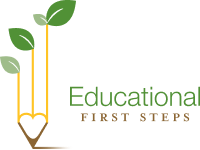Welcome to the new EFS website!
Investing in Early Childhood Education Is an Investment in...
CHILDREN’S LIFELONG POTENTIAL
Put All Kids on an Equal Path to Success
Developmentally appropriate curriculum and education during the first few years of life supports the growth of children’s cognitive, linguistic, social, emotional, and motor skills.
EFS works with local teachers to provide an environment that is mentally stimulating, academically enriching, and grounded in unconditional love. We believe that no matter where children are born or where they grow up, they deserve the same opportunity to thrive.


THE LOCAL ECONOMY
Strengthen the Economy
Over 80% of EFS childcare partners are small businesses owned and operated by women of color. These small business owners provide working parents with reliable and affordable childcare — in turn allowing these parents to pursue career opportunities that unlock greater economic security for both the present and the future.
With parents able to maintain better jobs and children receiving higher-quality education, the foundation is laid to break cycles of generational poverty and create a brighter, more equitable tomorrow for children and communities across North Texas.
COMMUNITY SUCCESS
Build Stronger Communities for Life
Many of the children served by EFS partner centers are growing up under conditions of poverty, food insecurity, and housing inconsistency.
Such childhood traumas may have lifelong behavioral and emotional consequences including self-destructive behavior, aggression, separation anxiety, and depression — all of which bear societal consequences in the form of greater risk for substance misuse, joblessness, and incarceration.
By providing a safe and supportive environment for children during one of the most critical times in their lives, EFS partner centers support healthy development that affects the social fabric of the entire community.

THE BOTTOM LINE
Early Childhood Education Is a Smart Investment
Beyond the benefits to well-being of families and kids, Nobel Prize-winning economist James J. Heckman has found clear economic returns to society at large. According to his research, early education pays dividends to society over both the short and long term.
 This table is adapted from “Invest in early childhood development: Reduce deficits, strengthen the economy” by James J. Heckman and the Heckman Equation. Please read the full report for more.
This table is adapted from “Invest in early childhood development: Reduce deficits, strengthen the economy” by James J. Heckman and the Heckman Equation. Please read the full report for more.
“Data shows that one of the most effective strategies for economic growth is investing in the developmental growth of at-risk young children. Short-term costs are more than offset by the immediate and long-term benefits through reduction in the need for special education and remediation, better health outcomes, reduced need for social services, lower criminal justice costs and increased self-sufficiency and productivity among families.”





